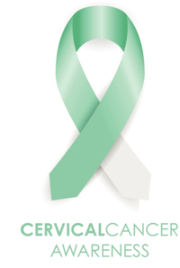Cervical Cancer: What You Need to Know
- Category: Living Well, Gynecologic Oncology
- Posted On:
- Written By: Joan Cheng, M.D.
What is Cervical Cancer?
Cervical cancer is a type of cancer that occurs in the cells of the cervix, which is the lower part of the uterus that connects to the vagina. In the past, cervical cancer was considered one of the most serious cancers among women, but now there are ways to detect cervical pre-cancers and cancers early on thanks to effective screening tests (Pap and HPV test) and receiving a vaccine (Gardasil or Cervarix) that protects against the human papillomavirus (HPV) infection.
 Screening & Prevention:
Screening & Prevention:
A Pap test has been the traditional method to detect cervical abnormalities and allow for treatment before it develops into cancer. There is a newer test for women 30 years of age or older called the HPV test that finds the virus and helps determine if you are at higher risk for cervical cancer. The two vaccines that protect against most common strains of HPV include Gardasil and Cervarix. The vaccine is recommended for females starting at 11 – 12 years of age and up to 26 years old. Although the vaccine is expected to decrease cervical cancer rates, it is still important to get screened regularly.
Warning Signs and Symptoms:
Since most women do not experience any symptoms until the cancer has advanced, it is important to be aware of cervical cancer signs including excessive vaginal discharge, pelvic pain or bleeding during or after intercourse, after menopause or at unexpected points in the menstrual cycle. In most cases if caught early enough, treatment may only entail removing the cancer through a biopsy or surgery. However, in more extreme cases, women may need to have a hysterectomy to remove the entire uterus.
The good news is that cervical cancer is usually slow-growing over the course of many years, deaths continue to decline by 2% a year and most of the more than 12,000 Americans diagnosed annually can be cured.
Joan Cheng, M.D. is a Gynecologic Oncologist with Crescent City Physicians, Inc., a subsidiary of Touro infirmary. Dr. Cheng attended Tulane Medical School and completed her residency at University of New York at Stony Brook. She then served her fellowship at University of Southern California. Dr. Cheng chose the specialty of Gynecologic Oncology because it represents a subspecialty in medicine that has the perfect blend of complex surgery and medical oncology, both of which SHE find fascinating and gratifying. And as a mother, wife, daughter and sister, Dr. Cheng connects well with the women she cares for.


